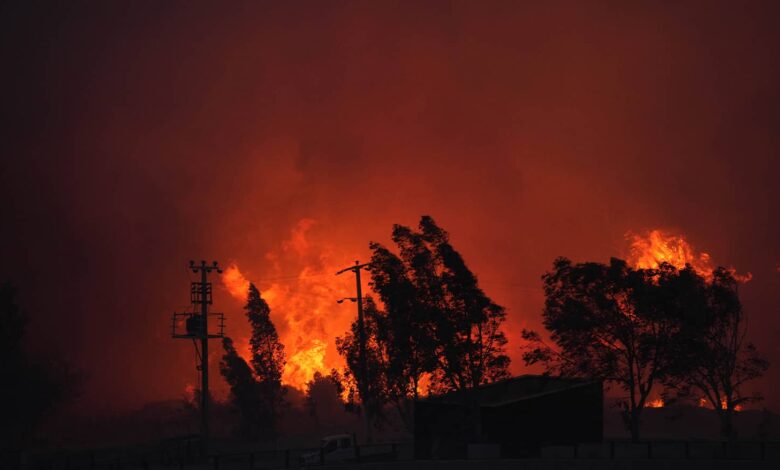
It had threatened to force the evacuation of villages in the North Aegean region of Turkey as firefighters struggled to put out the blaze for the third day on Tuesday. The fire started Thursday, ignited houses, and was fanned by winds that had been estimated to be blowing at 50 kilometers per hour.
Even though partial containment of fires has been achieved, local forests are still under threat of the flames. In the northern suburbs, especially the Ornekkoy district, burnt houses and cars are an evident memento of the fire tragedy. This was the lamentation of Hanife Erbil, a 42-year-old mother of three who collects paper and plastic waste as an income-generating activity: “Our workplace is in the fire’s path. We’ve lost our livelihood. ”
Fumes are clearly rising from the ground in Izmir, which is Turkey’s third-largest city in terms of population. Aid from other cities and the military has been sent to supplement the numerous firefighting crews. ‘It is partly being tackled,’ declares one firefighter, Arjin Erol, currently on a 36-hour shift.
Around 850 people from five districts had to be evacuated to ensure their security, while only several willing people stayed at the site to look after the animals. For now, 16 buildings are reported to have been destroyed, which has affected 78 people, of whom 29 had to seek medical attention.
Besides the current fire in Izmir, Turkey, there are other fires across the country, which shows that climate change is bringing more mishaps like wildfires. Critics point out that despite the progress Turkey has demonstrated in dealing with fires since the fatal blazes of the summer of 2021, there are still problems.



